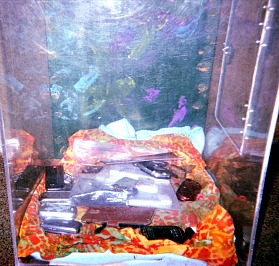Recycle my cellphone where?
Some might ask, “recycle my cellphone where?” Others might wonder why they need to recycle their old cellphones when they purchase a newer model. Many phone companies don’t encourage their customers to recycle their old mobile phone after purchasing a newer model.
A new study, published in the International Journal of Life Cycle Assessment, reveals that the constant cycle of mobile phone upgrades seriously affects the environment.
Devices discarded or not recycled by the owner affect the metals used as part of the manufacturing process. Metals such as gold, copper and zinc also remain unused when they are not recycled back to manufacturing of other mobile phone devices. Making new cellphones to replace the older ones is carbon-intensive.
Almost all of the materials used to manufacture cellphones may be recycled and used to make new products. Industries that use the metals from recycled cellphones include jewelry making, automotive manufacturing and electronics. Recovered plastics are recycled into plastic components for new electronic devices. Some of these recycled plastics are also used to make other plastic products that include garden furniture, plastic packaging and auto parts.
Why should I recycle my cellphone?
People may also ask, “why should I recycle my cellphone?” There are many environmental benefits to recycling or reusing cellphones. Recycling older mobile phones keeps reusable materials out of landfills, saves energy and conserves natural resources.
Cellphones contain a variety of precious metals, plastics and copper. Recycling or reusing these mobile phone devices conserves these valuable materials. Recycling older mobile phones prevents air and water pollution. Greenhouse gas emissions that occur during manufacturing are reduced.
There is another answer to the question, “why should I recycle my cellphone?” Discarding a cellphone often leaves a toxic imprint on the environment for a number of reasons.
• Printed circuit boards contain toxic metals including lead, nickel and beryllium.
• Liquid crystal displays contain mercury.
• Batteries may contain nickel and cadmium, particularly older ones.
• Plastics may contain brominated flame-retardants, which are toxic and persist in the environment.
Here's where you should recycle your cellphone.
Before disposing of your cellphone in a community recycle center or other cellphone recycling depository, it is recommended that you first remove all personal information. Your mobile device most likely retains sensitive information such as addresses, passwords, account numbers, phone numbers and logs for email or text messages.
There are many options when it comes to disposing of your old mobile phone device. Recycling your mobile phone in a community recycle center or asking how you can recycle your old device when you purchase a new one in a store are two options.
Many mobile device manufacturers, wireless service providers and other groups have programs that will refurbish old mobile phone devices or recycle their components.
Most charities accept old mobile phones. It doesn’t matter if the mobile phone is still operational. These organizations raise money by distributing the older devices to mobile phone recycling companies.










